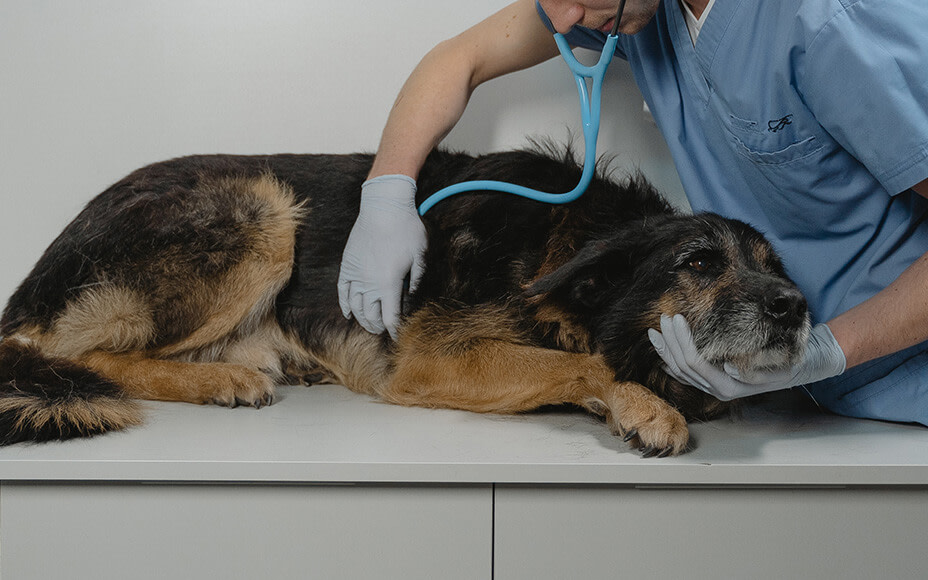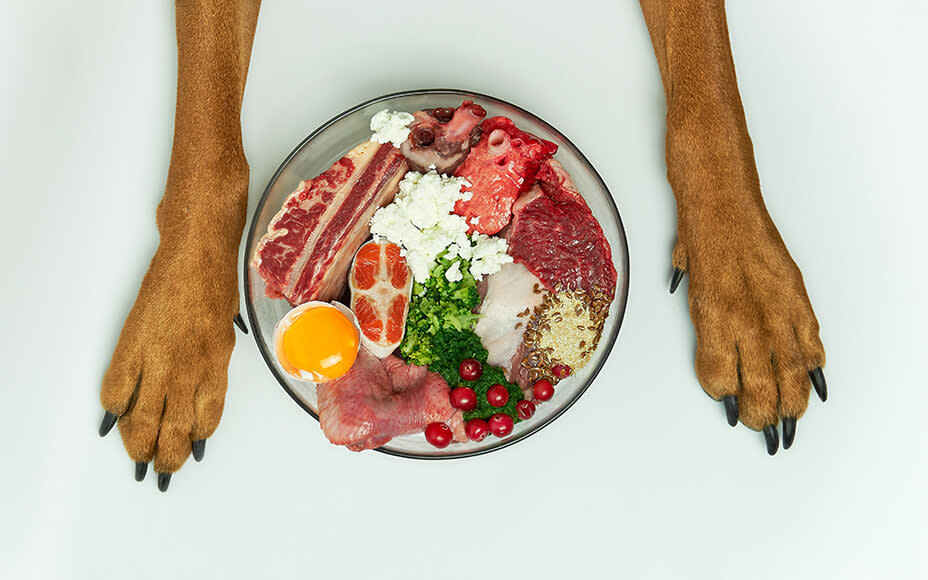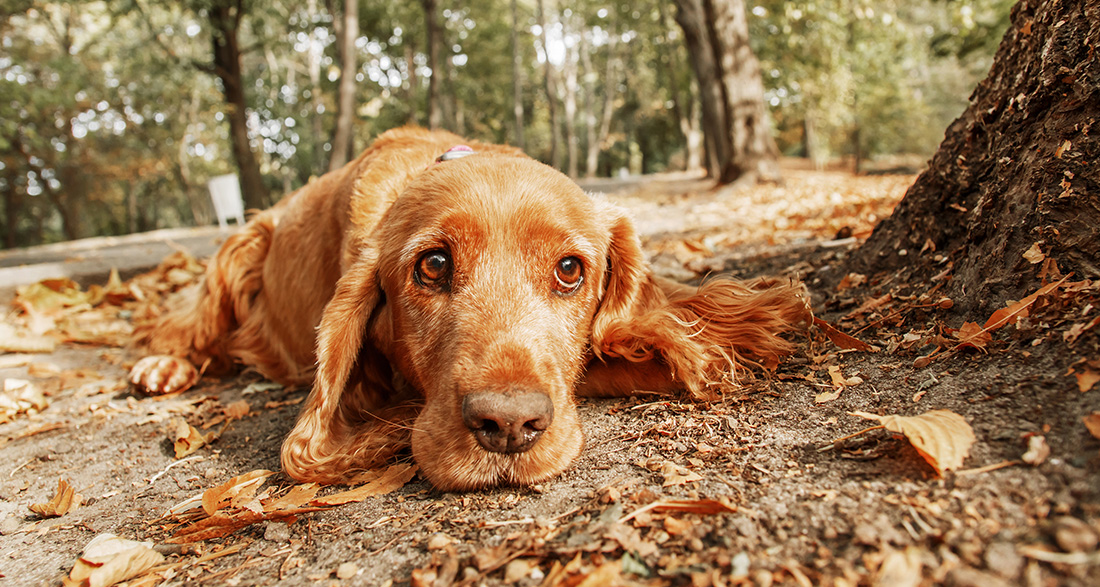Digestive problems in dogs manifest through recurring diarrhea, vomiting, and more. Learn how you can help your dog sustainably.
Symptoms of Gastrointestinal Problems in Dogs
Gastrointestinal problems are among the most common health issues in dogs. These can range from mild digestive disturbances to serious illnesses. It is crucial to recognize the symptoms and understand the causes to take appropriate measures and maintain your dog’s health.
Common symptoms of digestive problems in dogs include:
Vomiting:
Repeated vomiting can indicate various issues, from simple stomach upset to more serious conditions. Vomiting is a clear warning signal of problems with the stomach.
Diarrhea:
Diarrhea can manifest as frequent or watery stools, indicating disrupted bowel function or infections. However, constipation or very dry stool is also abnormal and should be observed.

Loss of Appetite:
A sudden loss of interest in food can suggest gastrointestinal issues. However, some dogs can be very picky eaters. While you know your dog best, consult a veterinarian in case of doubt.
Abdominal Pain:
Abdominal pain in dogs is usually characterized by restlessness, frequent pacing, assuming the “prayer position” (dog stretches with the hind end in the air), refusal to eat, abdominal sensitivity, and overall unusual behaviors.
Weight Loss:
Acute digestive issues may not directly cause weight loss. However, chronic gastrointestinal problems can lead to weight loss, emphasizing the importance of timely action.
In general:
We always recommend consulting your veterinarian if you are uncertain. Sometimes, a simple phone call can provide reassurance.
Causes of Digestive Problems in Dogs
The causes of gastrointestinal issues in dogs are diverse but must be identified. Only then can suitable treatment be initiated, providing sustainable help for your dog.
Common reasons for digestive problems in dogs include:
- Incorrect Nutrition: An unbalanced diet or fast eating can lead to digestive disorders.
- Infections: Bacterial, viral, or parasitic infections can cause gastrointestinal problems.
- Allergies and Intolerances: Some dogs suffer from food intolerances, reacting sensitively to certain foods, leading to gastrointestinal issues.
- Pancreatitis: Inflammation of the pancreas can cause severe digestive problems.

Treatment Options for Gastrointestinal Problems in Dogs
For persistent issues, a thorough examination by a veterinarian is essential. Only if the cause of the problem is identified can a sustainable treatment be implemented. It is crucial not to wait too long to prevent chronic digestive problems in dogs.
In some cases, medication may be necessary to alleviate symptoms or fight infections. Additionally, a course of probiotics, prebiotics, or postbiotics can be beneficial for restoring the intestinal flora. Both should always be done in consultation with a veterinarian.
In most cases, a special diet is also recommended to relieve the gastrointestinal tract.
Nutritional Tips for Regular Digestive Problems
It is important to emphasize that in the case of persistent gastrointestinal problems, a veterinarian should be consulted. The veterinarian can diagnose the exact cause and recommend an individual treatment strategy, including the dog’s nutrition. A balanced diet and food with easily digestible components play a crucial role in maintaining the health of the gastrointestinal tract and, consequently, the overall health of the dog.
Common nutrition recommendations from veterinarians include:
- Light, Easily Digestible Diet: Choose easily digestible food options that are gentle on the gastrointestinal tract.
- Feeding in Small Portions: Instead of large meals, feeding in small portions throughout the day can be helpful.
- Avoidance of Food Allergens: Identify potential allergens and avoid them in the dog’s diet.
- Probiotics and Postbiotics: Probiotic supplements can support the intestinal flora and improve digestion.
Frequently Asked Questions
What helps with digestive problems in dogs?
Fresh, clean water, sufficient exercise, and a healthy diet are three crucial factors for a healthy digestion. If your dog has acute diarrhea, you can feed a bland diet for a day or implement a short fasting period. If the condition doesn’t improve after 2 days, contact a veterinarian.
How can I rebuild my dog’s gut flora?
If your dog has suffered from gastrointestinal issues, veterinarians offer probiotic products (e.g., pastes) specifically for rebuilding gut flora. For long-term support and maintenance of gut flora, a diet with prebiotics, probiotics, or postbiotics can be fed.
What food is good for dogs with digestive problems?
Reduced-fat food with highly digestible ingredients may be more tolerable for dogs with digestive problems. This includes varieties with lean meat, valuable fibers like carrots and psyllium husk, and gentle carbohydrates like rice.
How do digestive problems manifest in dogs?
Digestive problems can be identified through digestion and stool consistency. Signs of digestive problems are quite clear, ranging from flatulence, restlessness, and abdominal pain to increased attempts to defecate, diarrhea, or very hard stool, possibly with blood.


